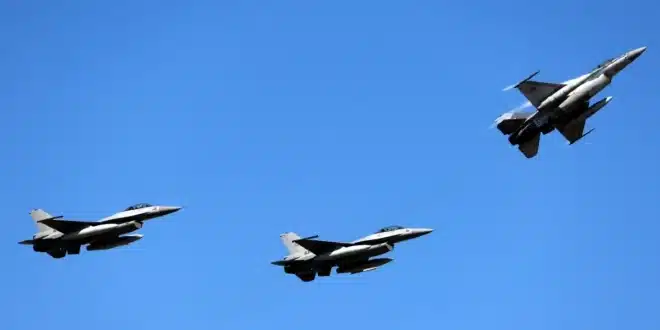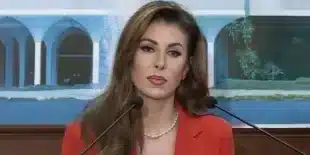NATO fighter jets intercepted three Russian warplanes that entered Estonia’s airspace on Friday, prompting sharp condemnation from Estonian leaders and fresh warnings of rising tensions along the alliance’s eastern flank.
According to Estonia’s foreign ministry, three Russian MiG-31 fighter jets crossed into Estonian airspace over the Gulf of Finland without authorization and remained inside the country’s borders for 12 minutes. Italian F-35s deployed to Estonia under NATO’s Eastern Sentry mission responded swiftly, backed by Swedish and Finnish aircraft, forcing the Russian jets to retreat.
Prime Minister Krisen Michal described the violation as “totally unacceptable,” adding that Estonia would invoke NATO’s Article 4 to hold emergency consultations. Estonia’s foreign ministry also summoned Russia’s chargé d’affaires to formally protest the incident.
Escalating Tensions Across the Baltic
Just hours after the Estonian violation, Poland’s border guard reported that two Russian jets conducted a “low-level pass” over a Petrobaltic oil platform in the Baltic Sea. Polish authorities said security services are closely monitoring the situation.
Estonian Foreign Minister Margus Tsahkna noted that Russia had already violated Estonia’s airspace four times in 2024, but emphasized that Friday’s incident was “unprecedentedly brazen.” He warned that Russia’s “growing aggressiveness must be met with a swift increase in political and economic pressure.”
Romania’s foreign minister Oana Tolu expressed solidarity, saying Moscow was attempting to weaken NATO unity but instead was “achieving the exact opposite.” Ukrainian President Volodymyr Zelensky called the airspace breach part of a “systematic Russian campaign directed against Europe, against NATO, against the West.”
NATO and EU Reactions
NATO officials described the incident as reckless and dangerous. Alliance spokesperson Allison Hart said it showed “NATO’s ability to respond quickly,” while Secretary General Mark Rutte praised the intercept as “decisive.”
The European Union also reacted strongly. EU foreign policy chief Kaja Kallas labeled the violation an “extremely dangerous provocation,” noting it was the third breach of EU airspace in recent days. “Putin is testing the West’s resolve. We must not show weakness,” she wrote, pledging the EU’s full support for Estonia.
European Commission President Ursula von der Leyen pushed for swift approval of a new package of sanctions on Russia, warning, “We will respond to every provocation with determination while investing in a stronger Eastern flank.”
British Foreign Secretary Yvette Cooper echoed the call, stressing that the UK stood firmly with Estonia and supported stronger economic pressure on Moscow.
Pattern of Provocations
The latest incident follows a string of Russian drone and aircraft incursions into NATO territory this month. Just last week, NATO jets shot down multiple Russian drones that strayed into Polish airspace during an attack on Ukraine—marking the first time NATO forces had fired on Russian equipment since the start of the war. Days later, Romania scrambled F-16s after a Russian drone crossed into its territory, though pilots held fire to avoid collateral damage.
These repeated violations have heightened concerns that Moscow is deliberately probing NATO defenses and escalating risks of miscalculation. For allies in the Baltic and along the Black Sea, the incidents underscore the urgent need to strengthen air defenses and reinforce the alliance’s eastern borders.


